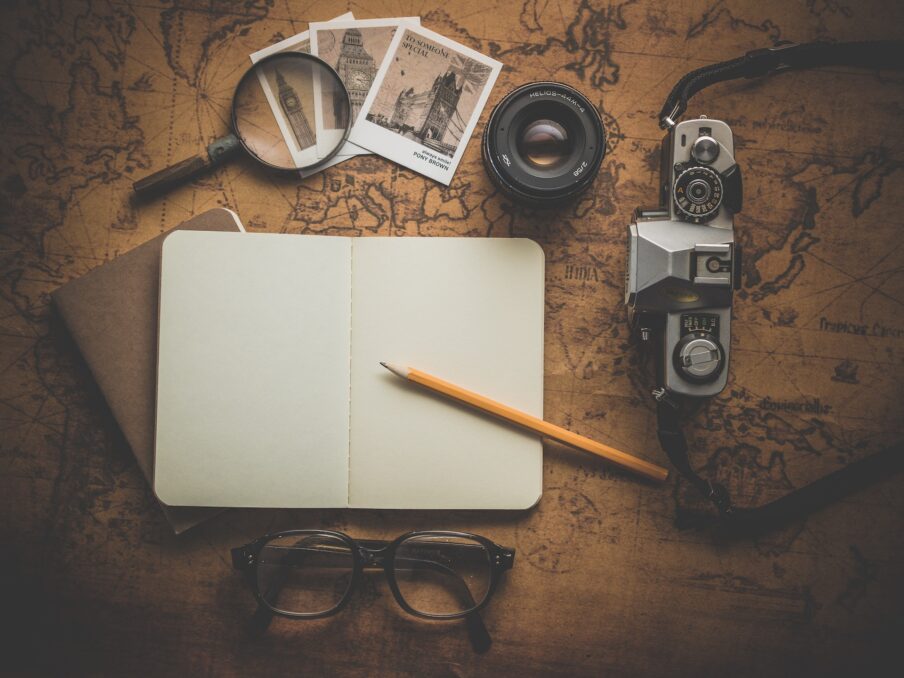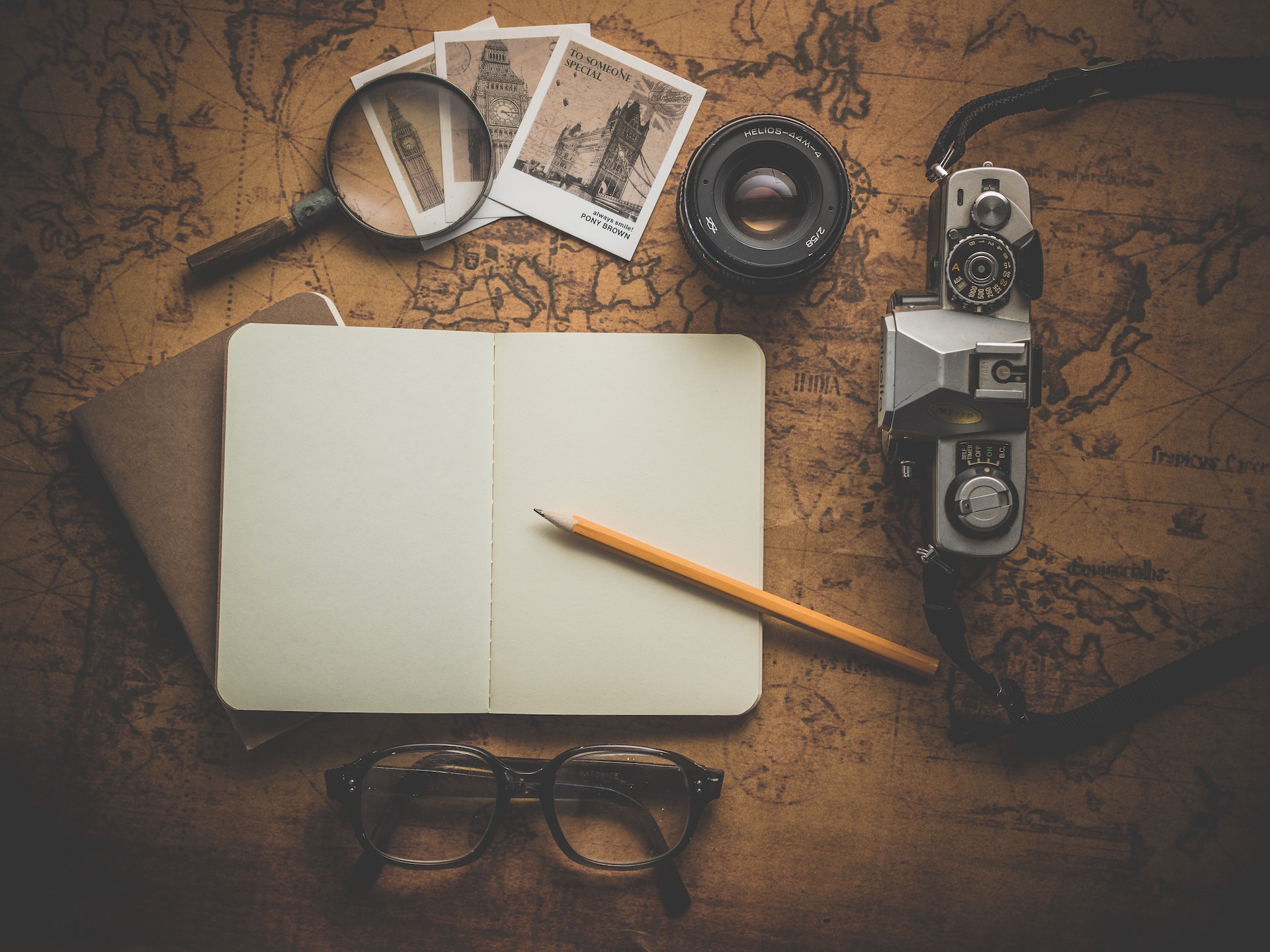By Carrie L. Weston, @carrieallbooks
Many of us have seen it–social media posts of our favorite authors on a “research trip” to England, Greece, or some other location where they combine time spent eating and restaurants or on the beach with time in museums and archives, or walking the streets where their novels are set. Not everyone chooses to locate their books in real settings or have an emphasis on realistic portrayals of a location, but many authors want to give their readers a sense of being there in whatever place their book is set.
However, many beginning authors cannot afford to make a trip abroad, or even somewhere in their home country just for research. Day jobs, children, or other factors may also make this impractical. Have you ever tried to take a toddler with you to read archival documents? It works about as well as you’d imagine.
So, how do we conduct location-dependent research when we can’t actually get to that location?
Google Earth is Your Friend
Even if it can feel invasive some of the time, Google Earth and Maps can be really to get first an overhead idea of the area that you are researching to include in your novel. This overhead view can often reveal things that you might not see from on the ground as well. When I decided to set my upcoming book, A Remote Chance in Door County, WI, I knew that I needed a lake that was reasonably clear, remote, and had unoccupied land near it. None of the lakes that I had seen while on vacation would work, but through using Google Maps as well as street view I was able to pinpoint Europe Lake as the location, and study it for a year before getting to be there in person. (Incidentally, it made finally seeing it in person feel all the more meaningful when I finally got the chance.)
Make Use of Local Historians
By and large local historians are happy to answer questions that you might have–even the most random ones. Many of these unsung heroes have vast stores of knowledge about their area of expertise, or know who locally would have knowledge about World War Two on the homefront, agricultural practices in the 1800s, the history of the local school mascot, or the architecture present in the community in the 1930s. Your interest in the information they love to research also helps to ensure that they continue to have a job in that community.
Historians are often happy to photograph artifacts or scan documents and send them. One prominent example of this is when CNF author Laura Hillenbrand was writing Unbroken, the story of Louis Zamperini, who was an Olympic athlete and pilot in World War Two. She suffered from agoraphobia, which meant that she was unable to travel to research her book. Instead, artifacts, including a Norden bombsight–an important innovation in military aviation were brought to her to study.

There Are Websites For Everything
Are you writing about shipwrecks in Lake Michigan, and need one that happened in shallow water, and where hopefully no sailors died? I was, and thankfully the website Wisconsin Shipwrecks exists, where I was able to find archaeological site plans, photographs of the wreck and the ship itself, length, style of vessel, story of its construction, service, last voyage, and what cargo it was carrying when it sank.
Or maybe it is learning about the original trains that inspired Thomas the Tank Engine, or the progression of Regency fashion in Jane Austen’s life–there is a website for that. This may require searching and hunting through various websites that are not as useful. One important note–if you find research that is pay-gated, as in a piece of scholarly research that would cost money to access–don’t. Academic and community librarians may be able to access a digital copy of it for you without paying, or may have the print version available, if not locally, then through interlibrary loan. Or, ask your local college student or academic friend who may be able to get a copy.
Use Social Media For More Than Browsing
One of the best features of social media (at least in my opinion) is the growing ability of many sites to allow you to save and sort information for use later. You can also save this information into individual folders/collections that suit a particular topic. I also save a folder on each of my social media profiles with Random Story Ideas filled with memes and posts that make me think of different ideas.
Following local police and fire departments, attractions, restaurants, historic societies, schools, and community groups can also give you an increased sense of place that will flow into your stories and make them all the richer. Then, even if you don’t read through all the posts, you can save the pertinent ones.
This focusing on research through social media has an additional added benefit. If you happen upon a post pertinent to the topic of your work in progress, it may help to stop the scroll and inspire you to dig back into your novel and write.
Also, consider topic specific groups, like ones devoted to portraying fire and police work in stories, groups to answer medical questions for novels set in hospitals or for crime writers who want real answers about the effects of poison on a person. There is a group that features legal experts who want to help you with writing stories that portray historic or contemporary legal issues in a variety of locations. There are groups for military writers, trauma fiction, and historical combat. There are also groups that can answer questions about writing with social awareness, which is particularly useful if you are considering writing a character outside of your own ethnicity or who lives in a different culture.
We all wish that we could go to the real locations we portray in our writing, and hopefully eventually that will be the case. However, there are lots of times and circumstances that mean that this isn’t always possible. There are lots of ways to delve into research and learn about a setting without actually being there all the time. Research can be fascinating and add complexity and nuance to your writing. But in the end, as interesting as it can be to learn and build the world of your story, you need to put down the research documents and get to writing your book!
Carrie Weston is a writer and professor living and working in the Twin Cities. Carrie is the managing editor of Shore to Shore Literary Magazine. Her writing has been featured in places like Spark Flash Fiction and her debut novel will be published in 2023. In addition to writing, Carrie teaches writing at multiple Minnesota universities, as well as instructing in local community education. She has a M.A. in Strategic Communication Management and an MFA in Creative Writing. Carrie is originally from Michigan, and her family enjoys exploring the Great Lakes region and writing stories of communities and people in the area. Connect with Carrie at carrielweston.com



Comments 2
Thank you, Carrie, for your post filled with great ideas. This one is a keeper!
Blessings,
MaryAnn Diorio
My uncle’s father worked at Naval Avionics as a mechanic-and worked on the Norden bombsights!
Back before the internet, the library was my best friend. Plus interviewing people who had been to those places.